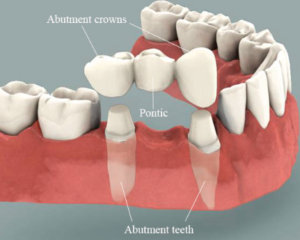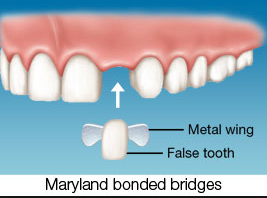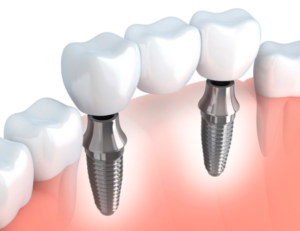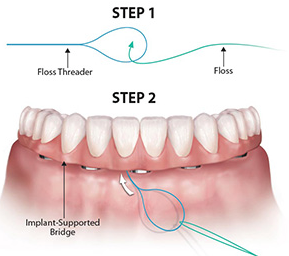Dental Bridge Options for Your Missing Teeth
A dental bridge may serve many purposes—they replace teeth that are lost, they prevent the migration of teeth into the “empty space,” and they improve chewing efficiency.
Despite the varieties of dental bridges available, there are common engineering principals that apply. The “abutments” (the “pillars” at each end) must be in solid bone or foundation, with almost no movement. The “pontic” (the suspended or replacement tooth/teeth) must not overload or overwork the abutments. One option is a Maryland Bridge which is a special type of dental bridge where there are metal wings that cover only part of the neighboring teeth. To make up for the lack of retention to the abutment, special resin cement must be used in addition to acid-etching the metal wings. Unfortunately, because of the delicate cementation process, it is very difficult to re-cement a Maryland bridge identically a second time should it become loose. A conventional bridge has full coverage abutment crowns that fit on top of the abutment teeth. A well constructed bridge should have great retention and resistance even before cementation.
In the event your natural teeth cannot act as the “abutment” due to weak tooth structure or weak bony support, root form dental implants may be placed. Once they have healed and fused to the bone, the implant bridge may then be constructed and either screwed or cemented on to the implant abutments.
To maintain your bridge, you should use floss threaders and floss to pass it under the bridge to remove plaque and food. Doing so will prevent food from getting suck under the bridge causing bacterial fermentation, decay and keep your breath fresh and healthy.
If you are missing a tooth and would like to have an evaluation by a Board-Certified Prosthodontist, call Dr. Huang at 703-532-7586 for your consult.
Nova Premier Dental
313 Park Ave #306 Falls Church, VA 22046
(703) 532-7586




